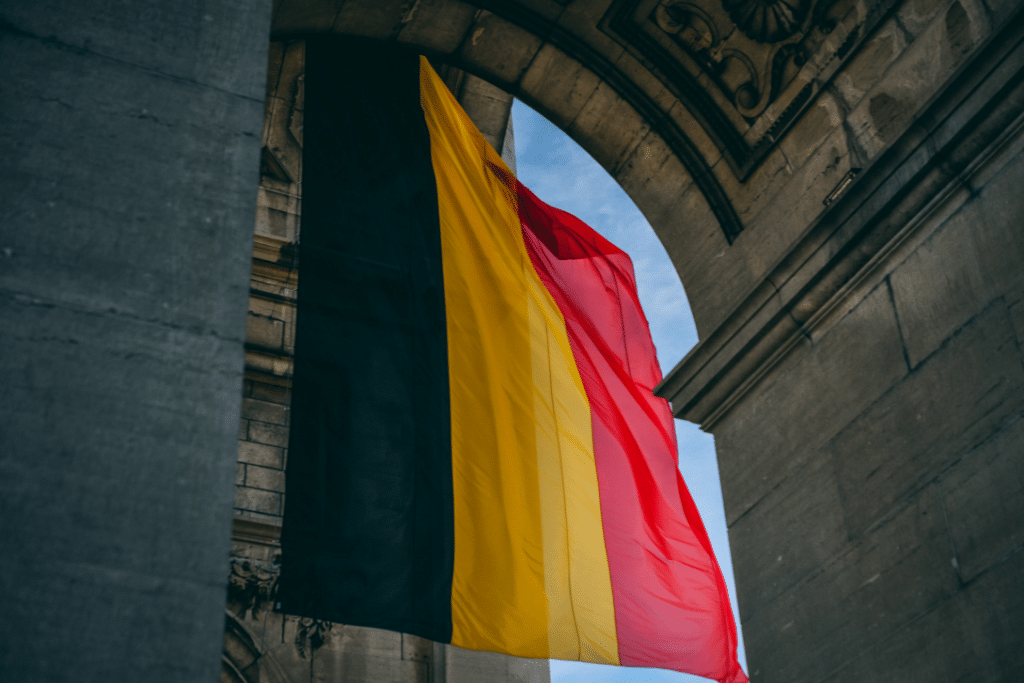We hope the mentioned good practice case will encourage other governments and policymakers to do the same in their respective countries. Exhibitions and trade shows are the fastest of fast-tracks to economic recovery once the coronavirus crisis has passed and will deliver the best return on investment now. We sincerely thank UFI, EEIA, and EMECA for providing valuable information.
CASE STUDY: BELGIUM
Belgium was one of the most aiding countries when it came to the meetings and exhibitions industry. Their financial aid helped the industry persevere.
EMERGENCY HELP
Expenditure measures (direct grants) and measures related to public guarantees, loans, tax deferrals:
On 11 April, the Belgian loan guarantee scheme to support the Belgian economy in the context of the coronavirus outbreak. The Belgian support measure, in the form of State guarantees on new short-term loans, will be accessible to all companies, including small and medium-sized enterprises (SMEs) and self-employed traders. The aim of the scheme is to help businesses affected by the economic impact of the current crisis cover their liquidity needs, thus ensuring the continuation of their activities.
On 14 May, a Belgian guarantee measure related to public guarantees: a Belgian guarantee measure, with an indicative budget of €500 million, for companies with export activities affected by the coronavirus outbreak. The support, in the form of State guarantees on loans, will be accessible to companies whose exports represent at least 30% of their annual turnover and will be implemented by the Credit-Export Agency “Credendo”, acting on behalf of the State. The measure will be open to small and medium-sized enterprises (SMEs) and large companies that face economic difficulties and liquidity shortages due to the coronavirus outbreak.

RESTART HELP
Expenditure measures (direct grants):
On 10 July 2020, a €6.35 million Belgian scheme to support up to 95 organisations, active in the social tourism sector in Flanders, which have suffered from a severe revenue reduction due to the coronavirus outbreak. The public support, which will take the form of direct grants, is intended to mitigate the severe liquidity shortage that the Flemish tourism organisations are facing, and prevent their bankruptcy.
On 9 October, a €15.8 million Belgian scheme to support hotels and aparthotels in the Brussels-Capital Region in the context of the coronavirus outbreak was approved. The measure allocates direct grants of a minimum €20,000 and a maximum €200 per hotel or aparthotel. These grants aim to provide support to affected establishments for lost income and ongoing operating costs for insurance, maintenance and security. The purpose of the measure is to mitigate the liquidity shortages that the hospitality operators are facing due to the restrictive measures imposed by the government to limit the spread of the virus and to ensure continuity of their economic activity.
Measures related to public guarantees, loans, tax deferrals:
On 6 August, A €50 million scheme to support companies active in the Flemish events sector that have been affected by the coronavirus outbreak. The objective of the scheme is to provide the necessary financing and insurance to companies active in the Flemish events sector in order to fund the restart of their activities, thereby enabling them to organize an event, make investments, and place orders. The support will take the form of repayable advances of a minimum amount of €25,000 and a maximum amount of €800,000, calculated as a maximum of 60% of the total costs of the event, as budgeted in the company’s business plan. The repayable advance will have to be reimbursed if the event actually takes place. Conversely, the repayable advance will not have to be reimbursed if the event is cancelled because of the coronavirus outbreak or of related measures adopted by the competent authorities.
On 6 August a Belgian support scheme for enterprises in the HORECA sector (hotels, restaurants, catering) and the mobile retail food sector, which have been severely affected by the coronavirus crisis. The support takes the form of an exemption from the annual contribution due by enterprises from these sectors to the Federal Agency for the security of the food chain (AFSCA) for 2020, which will apply to the entire Belgian territory. The aim of this scheme is to reduce the costs of the beneficiaries who are facing a serious lack of liquidity as a result of the coronavirus crisis.

RECOVERY HELP
Expenditure measures (direct grants):
On 1 February 2021, a €200 million Belgian scheme to support companies active in the Flemish Region affected by the coronavirus outbreak. Under the state aid Temporary Framework, the support, in the form of direct grants, is open to companies active in all sectors. The scheme was subsequently amended on 25 March 2021, the modifications allowing for additional aid options for beneficiaries and supplementary budgetary allocations. On 22 February 2021, a €34 million Belgian scheme to support tourism companies in the Flemish Region, in the context of the coronavirus outbreak. Under the state aid Temporary
Framework, the scheme aims to support investments in health measures, ecologic sustainability, digitalisation and professional
training, to help the recovery of the tourism sector on the background of the pandemic.
On 22 February 2021, a €149 million Belgian scheme to support the uncovered fixed costs of companies in the Flemish Region affected by the coronavirus outbreak. Under the state aid Temporary Framework, the scheme is open to companies active in all sectors except the financial one. The public support, in the form of direct grants, aims to mitigate the economic difficulties and the sudden liquidity shortages the beneficiaries are facing due to the restrictive measures imposed by the Belgian authorities to limit the spread of the coronavirus.

On 12 March 2021, a €10 million Belgian scheme to support organisers of festivals planned to take place in the Flemish and Brussels Regions in the context of the coronavirus outbreak. Under the state aid Temporary Framework, the support, in the form of direct grants, aims to mitigate the liquidity shortages faced by the beneficiaries due to the coronavirus outbreak. On 8 April 2021, the Commission approved a scheme worth €14.6 million to support hotels and similar accommodation establishments in Wallonia that were affected by the coronavirus crisis. Under the state aid Temporary Framework, the support, in the form of direct grants, aims to alleviate the liquidity shortages faced by the beneficiaries, thus mitigating the impact of the restrictive measures imposed by the Belgian authorities to limit the spread of the virus.
On 12 April 2021, the Commission approved an aid scheme amounting to €1.3 million aimed at supporting operators of tourist attractions in Wallonia affected by the coronavirus crisis. Under the state aid Temporary Framework, the support, in the form of direct grants, aims to alleviate the sudden liquidity shortages faced by beneficiaries following the restrictive measures imposed by the Belgian authorities to limit the spread of the coronavirus.
Measures related to public guarantees, loans, tax deferrals:
On 31 March 2021, the Commission approved a €200 million Belgian scheme to support economic activity in Wallonia in the context of the coronavirus outbreak. Under the state aid Temporary Framework, the public support, in the form of subsidised interest rates for senior and subordinated loans, is open to small and medium-sized enterprises and large companies active in all sectors of the economy except the financial one. The objective of the measure is to mitigate the liquidity shortages that businesses experienced due to the measures implemented in
Wallonia because of the coronavirus outbreak.
To find out more about Belgium’s aid scheme, click here.














